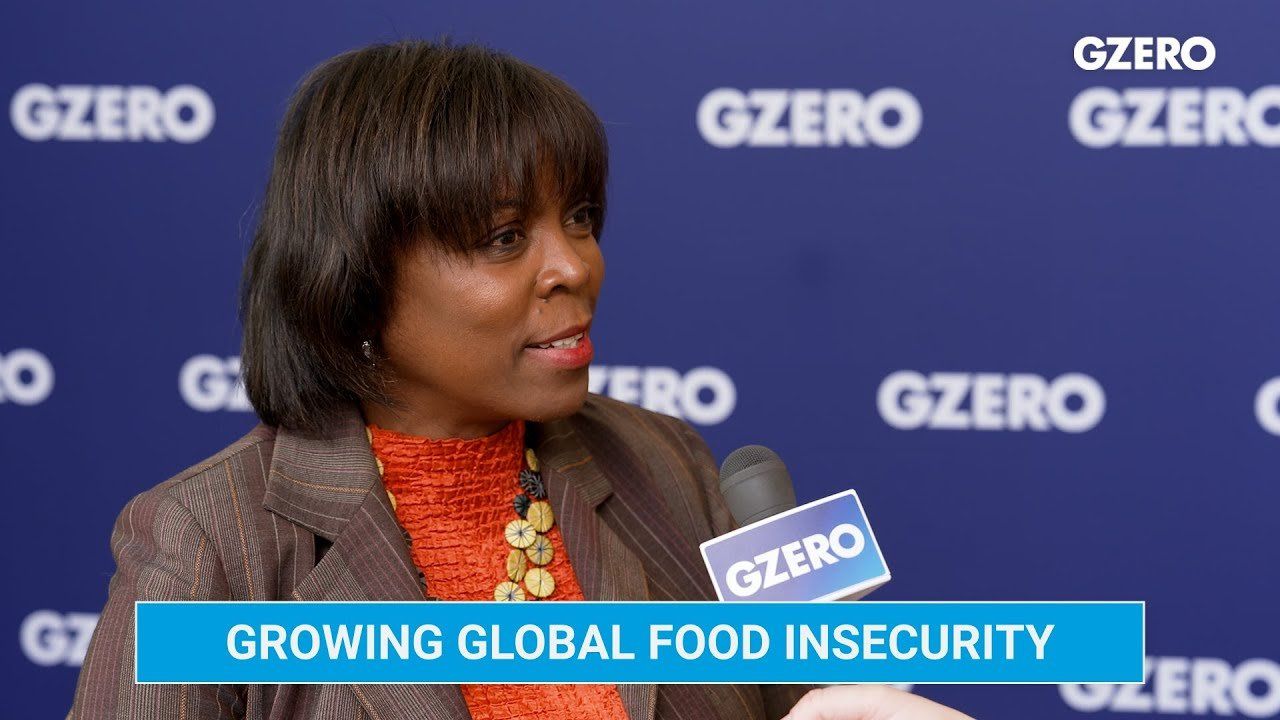Hunger Pains
Who's to blame for sky-high food prices?

Who's to blame for sky-high food prices? | Ertharin Cousin | US-Canada Summit | GZERO Media

More than a year after Russia's war in Ukraine, have we turned from not enough food to more expensive food for all? How is this having different impacts in the developed and developing world?
Who's to blame for food inflation? And can the US and Canada do something to make food more available and affordable for the rest of the world?
At a US-Canada summit, GZERO's Tony Maciulis caught up with Ertharin Cousin, who knows a thing or two about this stuff as CEO of Food Systems for the Future and former head the UN World Food Programme.
For more, sign up for GZERO North, the new weekly newsletter that gives you an insider’s guide to the world’s most important and under-covered trading relationship, US and Canada.
In this Quick Take, Ian Bremmer addresses the killing of Alex Pretti at a protest in Minneapolis, calling it “a tipping point” in America’s increasingly volatile politics.
Who decides the boundaries for artificial intelligence, and how do governments ensure public trust? Speaking at the 2026 World Economic Forum in Davos, Arancha González Laya, Dean of the Paris School of International Affairs and former Foreign Minister of Spain, emphasized the importance of clear regulations to maintain trust in technology.
Will AI change the balance of power in the world? At the 2026 World Economic Forum in Davos, Ian Bremmer addresses how artificial intelligence could redefine global politics, human behavior, and societal stability.
Ian Bremmer sits down with Finland’s President Alexander Stubb and the IMF’s Kristalina Georgieva on the sidelines of the World Economic Forum to discuss President Trump’s Greenland threats, the state of the global economy, and the future of the transatlantic relationship.